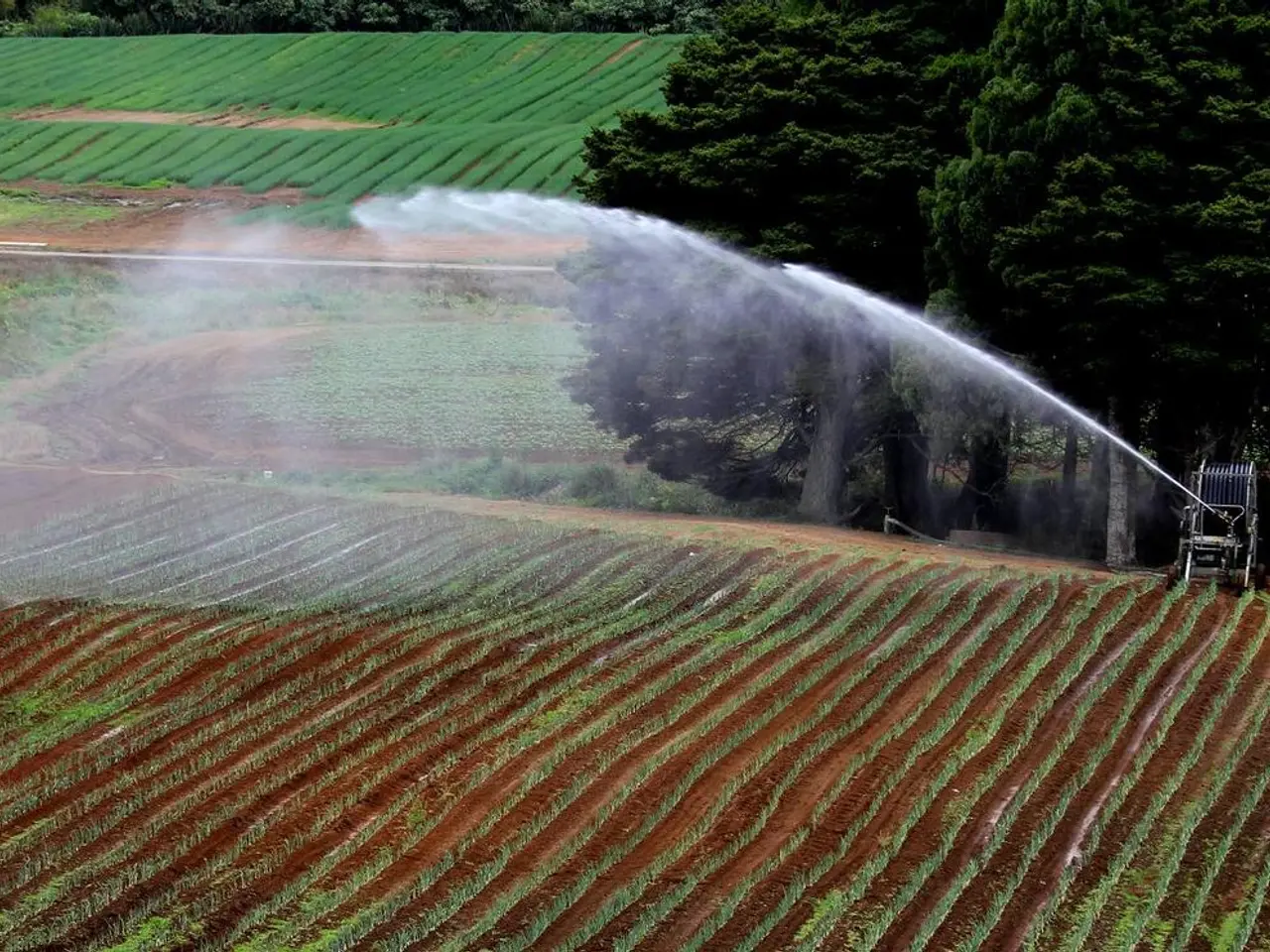China is moving towards a sophisticated, eco-friendly, and digitalized farming sector
In China, a significant shift is underway in the agricultural sector as the country embraces the integration of Artificial Intelligence (AI) and advanced technologies. This transformation is outlined in the China's Artificial Intelligence Agriculture Action Plan 2024-2028, which focuses on optimizing resource allocation and improving agricultural yields.
The plan promotes the adoption of AI-driven precision agriculture, smart irrigation, and machinery automation to enhance productivity, reduce labor, and promote sustainable farming methods. Key objectives include:
- Promoting AI adoption in agriculture: By leveraging real-time data from sensors, satellite imagery, and weather forecasts, farmers can make informed decisions and boost productivity while reducing labor demands.
- Developing smart farming machinery and technologies: Innovations such as AI-driven autonomous tractors, smart irrigation systems, and soil nutrient sensors optimize input use, reduce waste, and improve crop yields while lowering costs.
- Enhancing farmer engagement and technology literacy: Through targeted policies supporting technology innovation, government support, and addressing social and demographic factors affecting AI adoption, China aims to ensure a smooth transition to the new farming practices.
- Strengthening regional coordination: Optimizing the spatial allocation of agricultural resources, improving trade-production linkages, and ensuring efficient resource use across different areas are crucial for the success of the AI Agriculture Action Plan.
- Addressing sustainability and food security: Measures to reduce food waste and integrate AI in the broader food supply chain are being implemented to reduce environmental impact and ensure food security.
- Supporting policy innovation and technological research: To advance agricultural AI capabilities, increase efficiency, and support high-quality agricultural development aligned with modernization goals, China is investing in research and development.
At the Zhejiang Houji AIoT Intelligent Agriculture Integration Industrial Demonstration Park, these objectives are being put into practice. Hu Yaofeng's company, located at the site, uses the AIpaas system, which integrates AI and the Internet of Things (IoT) in crop production. The use of AI technologies at the site results in significant savings: 50% labor savings, 90% water savings, and a 77% reduction in fertilizer use.
The automated production process includes six stages: automatic palletization, placement of planting baskets, precise transplanting, tuber rotation, planting, and harvesting. Only the harvesting stage is not fully automated. The yield of vegetables produced using this system is five to seven times higher than that of traditional open-field agriculture. The automated process improves efficiency by 75% compared to traditional planting methods.
Moreover, the vegetables produced using this system are rich in nutrients and do not contain pesticide residues or heavy metals. This is achieved through the cultivation being 100% pesticide-free. Real-time monitoring of crop health, soil moisture, and pest appearance is possible thanks to AI drones and smart sensors.
China's commitment to integrating AI and advanced technologies into its agricultural practices is clear. By embracing this revolution, China aims to improve resource efficiency, raise crop productivity and yields, reduce environmental impacts, and support rural agricultural modernization, all while promoting sustainable development of the agricultural sector with strong government and regional collaboration.
Read also:
- Revitalize bouncing back: gaming sector rebounds from sales slowdown
- Rapid Growth in Bio-based Polypropylene Sector Anticipated at a Compound Annual Growth Rate of 26.5% by 2034
- Ford unveils novel electric vehicle platform and manufacturing setup
- Ford reveals cost-effective electric vehicle foundation, allocates $2 billion for Louisville factory upgrade




